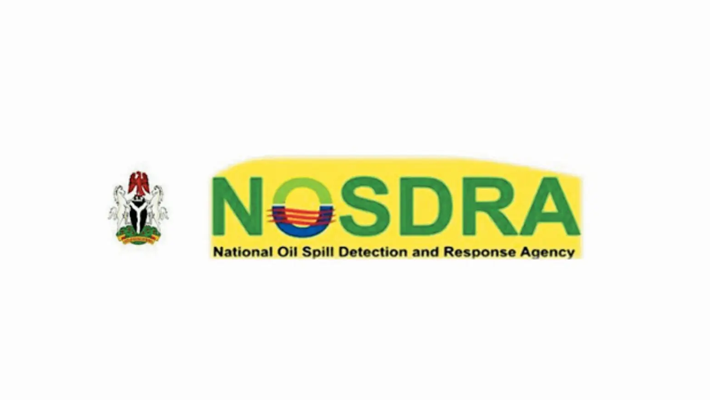Paragraph 1: Incident Overview and Initial Response
On February 17, 2025, the National Oil Spill Detection and Response Agency (NOSDRA) received a report of a crude oil spill originating from Shell Petroleum Development Company’s (SPDC) 16-inch Nun River-Kolo Creek pipeline near Obololi community in Bayelsa State, Nigeria. The spill, impacting the River Nun and surrounding communities, prompted NOSDRA to launch a joint investigation visit (JIV) to assess the situation and determine the cause. The JIV comprised representatives from NOSDRA, SPDC, the Bayelsa Ministry of Environment, and the affected community. This collaborative approach aimed to gather comprehensive information and ensure a coordinated response to the environmental incident. The primary objective of the investigation was to understand the circumstances leading to the spill and recommend necessary regulatory actions to mitigate its impact on the environment and local communities.
Paragraph 2: Challenges in Determining the Spill’s Cause and Initial Containment Efforts
The investigation into the oil spill faced immediate challenges due to the submerged nature of the suspected leak point. The underwater location of the pipeline hindered direct access and observation, making it difficult to pinpoint the exact cause of the spill. Despite this obstacle, SPDC initiated preparations to construct a cofferdam, a temporary watertight enclosure, to facilitate access to the submerged section of the pipeline and further investigate the source of the leak. Concurrently, containment measures were implemented to prevent the further spread of the spilled crude oil. These measures involved establishing a perimeter around the affected area to restrict the oil’s movement and protect unaffected areas of the River Nun.
Paragraph 3: Spill Recovery and Ongoing Monitoring
Recognizing the urgency of removing the spilled oil from the environment, SPDC began mobilizing resources for recovery operations. Temporary storage tanks were dispatched to the spill location to collect the recovered oil. The recovery process, commencing on February 21, 2025, focused on removing the free-phase oil, the oil floating on the water’s surface, which poses the most immediate threat to the environment. NOSDRA maintained active monitoring of the response efforts, ensuring that appropriate actions were being taken to address the spill effectively and minimize its environmental consequences. The agency committed to providing updates as the situation evolved and more information became available.
Paragraph 4: Contextualizing the Spill within Nigeria’s Oil Spill History
The 2025 oil spill from Shell’s pipeline in Bayelsa State adds to a concerning history of oil spills in Nigeria. NOSDRA’s 2024 report documented a significant number of spills, highlighting the ongoing challenges in the country’s oil industry. The report revealed that approximately 19,000 barrels of crude oil, equivalent to three million liters or 95 oil tanker trucks, were spilled in 2024. This underscores the scale of the environmental impact associated with oil spills and the need for effective prevention and response measures. The categorization of spills into different magnitudes, such as "major" and "medium," based on the volume and location of the spill, provides a framework for understanding the severity and potential consequences of each incident.
Paragraph 5: Categorization of Oil Spills and their Environmental Impact
The classification of oil spills into different categories helps to assess their relative severity and potential for environmental damage. A "major" spill is defined as one involving over 250 barrels spilled into inland waters or over 2,500 barrels spilled on land, swamp, shoreline, or the open sea. These large-scale spills can have devastating effects on ecosystems, causing widespread contamination of water and soil, harming wildlife populations, and disrupting local communities’ livelihoods. "Medium" spills, involving 25-250 barrels in inland waters or 250-2,500 barrels in other environments, also pose significant environmental risks, though on a smaller scale than major spills. The frequency of both major and medium spills, as reported by NOSDRA, highlights the need for continuous improvement in safety practices and regulatory oversight within the oil industry.
Paragraph 6: The Need for Proactive Measures and Industry Accountability
The recurring incidents of oil spills in Nigeria emphasize the urgent need for more proactive measures to prevent these environmental disasters. Strengthening regulatory frameworks, enhancing industry safety standards, and investing in advanced leak detection technologies are crucial steps towards minimizing the risk of future spills. Holding oil companies accountable for spills and ensuring adequate compensation for affected communities is also essential. Furthermore, fostering open communication and collaboration among stakeholders, including government agencies, oil companies, and local communities, is vital for building a more sustainable and environmentally responsible oil industry in Nigeria. Addressing the root causes of oil spills and implementing comprehensive preventative strategies will be crucial for protecting the environment and the well-being of communities dependent on the region’s natural resources.


